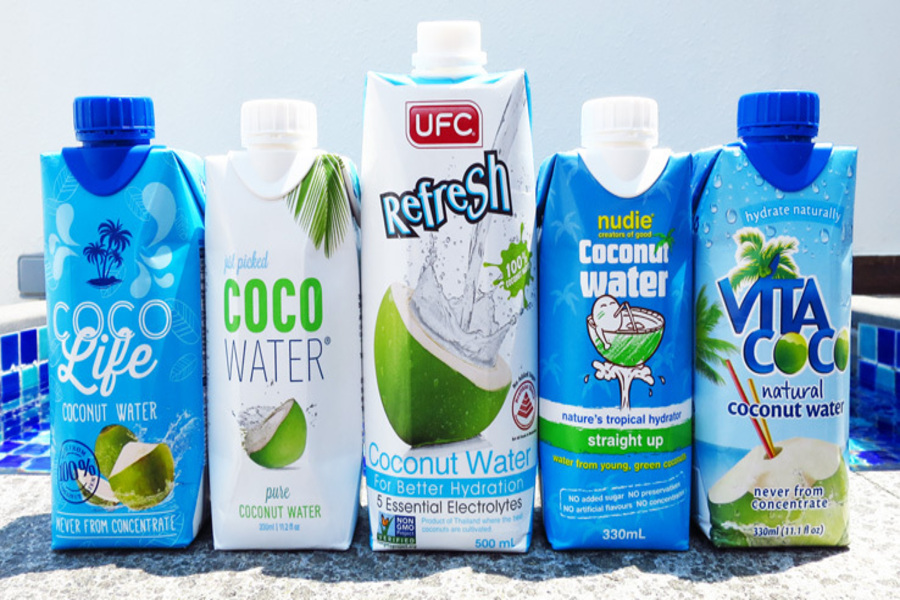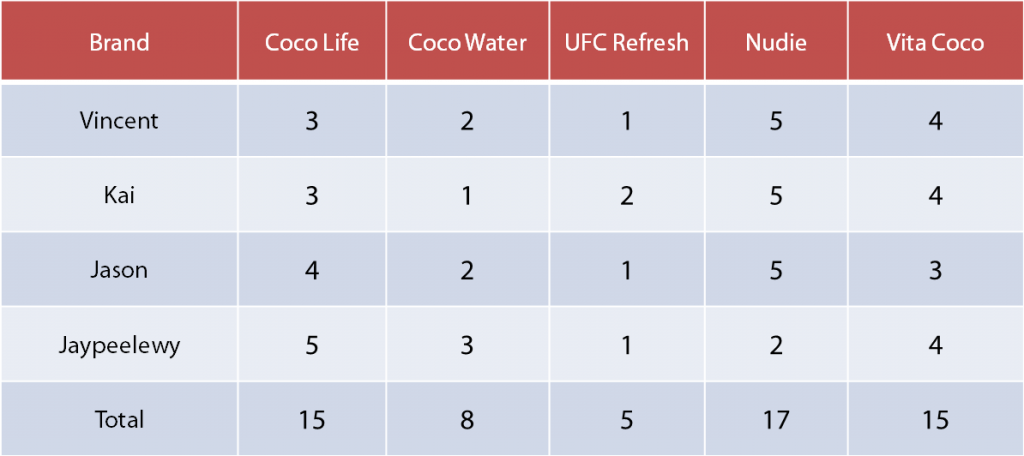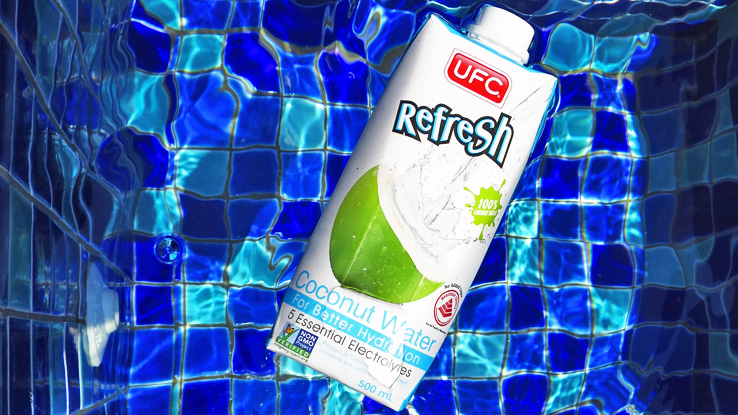
I’ve always wondered – where does all the coconut water come from? The craze didn’t pick up here until early this year and the increasing demand has drawn many a supermarket to carry not just one but multiple brands of coconut water. So if all coconuts are made equal (clearly, they are not), what are you willing to shell out for that over-hyped, purported health benefits of coconut water?
I’m not going to proclaim myself as an expert in this field but by doing some research, here are some health benefits of coconut water:
- Excellent for hydration – Besides the obvious fact that it’s mostly water, the electrolytes in coconut water help replenish the ones lost by perspiration, plus the fact that it’s isotonic to human plasma means it’s absorbed faster.
- Cures hangovers – The loss of electrolytes from alcohol dehydration and frequent urination is rapidly replaced by coconut water which contains potassium, magnesium, phosphorous, calcium and sodium.
- Low calorie sugared drink replacement – Craving for that sugar rush after a workout? Coconut water is low in sugar (all natural sugars anyway) but quells the desire for sugar-based drinks, making that workout totally worth it.
- Promotes smoother, youthful-looking skin – They found that coconut water possess a natural source of cytokinins which help to balance pH levels, strengthen and hydrate connective tissues and decelerate age-related ailments. SOLD.
- Good for digestive and urinary health – Known as a cure for healing all kinds of digestive disorders ranging from indigestion to constipation. As well as a natural diuretic, coconut water helps prevent urinary tract infections and kidney stones.
So, assuming they are all from ‘natural’ sources, they should be relatively similar in terms of mineral constituents but are they really? Here’s a breakdown of what’s available on the packaging:

The green shading indicates the highest proportion of the individual constituents, but it’s definitely not a reflection of “the more, the merrier” – especially for ‘Total sugar’. The prices listed are subject to fluctuation due to in-store promotions but these are absolute rack rates – what’s quoted here is from Cold Storage.
While the price per 100ml may not be indicative of the quality, and also the fact that certain brands don’t share the same volumes on sale, the impression is that UFC Refresh is a winner for a post-exercise drink – high in energy, potassium and other minerals, and yet moderate in even natural sugars. And it’s also the priced the lowest!
The choice is clear, or is it?
Health benefits of coconut water aside, which is THE favourite?
So, with practicality parked aside, we want to know which tastes the best (regardless of its price), and so we got a ‘panel’ of 4 coconut water aficionados to rank the drinks in a blind test from 1 to 5. Here are the results! (The lowest the total, the better)

And we have a clear winner!

This is not a sponsored post in case you’re wondering. It’s coconut water, and unlike red wine, there really aren’t that many dimensions to differentiate. However, some of them did register a much more thirst-quenching effect from UFC Refresh, and it may be because of its high(er) carbohydrate content, and second-to-the-rest potassium content which helps replenish those lost electrolytes.
When you’re reaching out for that Gatorade or 100Plus that’s full of sugar (artificial or not), think about coconut water as an extremely healthier alternative that really doesn’t cost all that much more. You’ll definitely feel better after knowing that workout didn’t go up in smoke!






